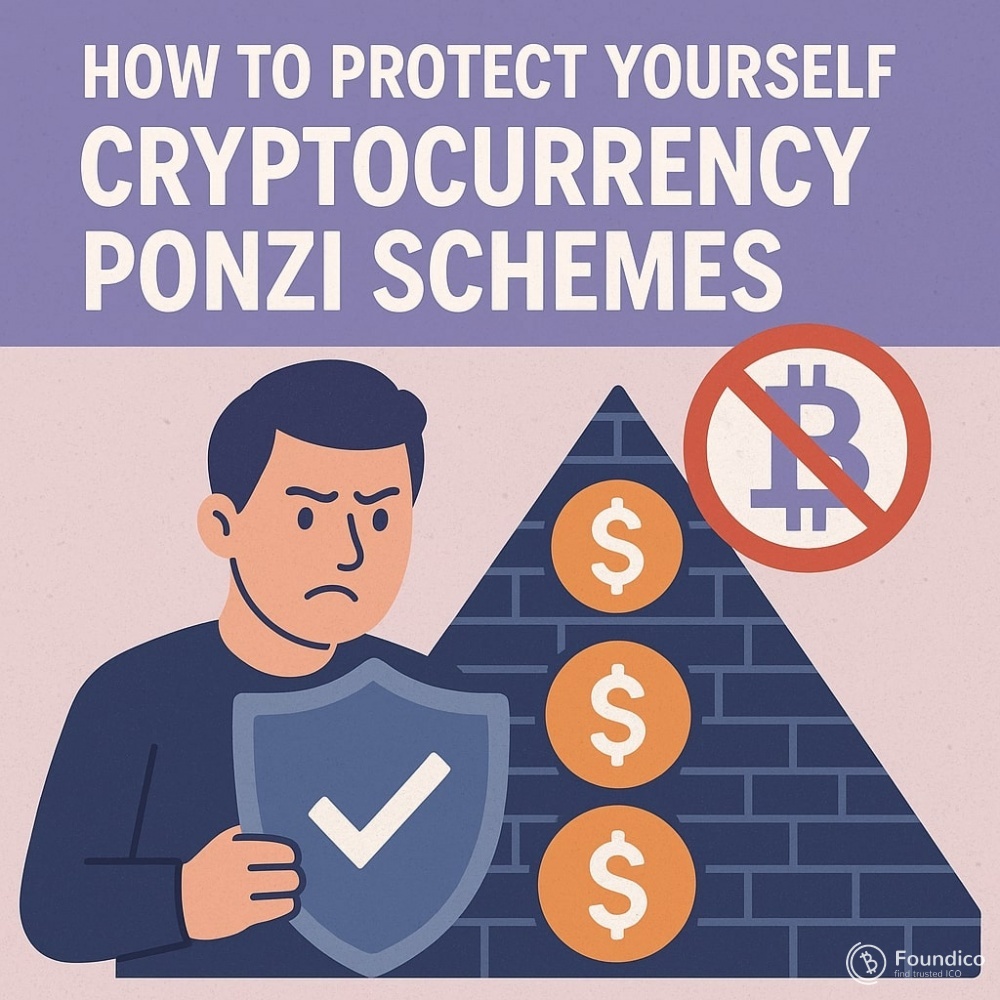How to Protect Yourself from Cryptocurrency Ponzi Schemes

The meteoric rise of cryptocurrencies has brought tremendous opportunities for investors worldwide, but it has also opened the door to a growing number of scams and fraudulent schemes. Among the most notorious threats are cryptocurrency Ponzi schemes, which lure unsuspecting participants with promises of extraordinary returns, only to collapse and leave investors with severe losses.
Understanding how these schemes operate and learning how to protect yourself is essential in today’s fast-evolving digital asset landscape.
What is a Cryptocurrency Ponzi Scheme?
A Ponzi scheme is a fraudulent investment scam where returns to earlier investors are paid out from the capital contributed by newer investors, rather than from legitimate profit earned by the operation. Eventually, when new investments dry up, the scheme collapses.
In the cryptocurrency world, Ponzi schemes often disguise themselves as legitimate projects, promising high, consistent, and sometimes “guaranteed” returns through crypto trading, mining, or investment programs. These schemes exploit the lack of regulation and the public’s fascination with rapid crypto gains.
Common Features of Crypto Ponzi Schemes
-
Unrealistic Returns: Promises of extremely high and consistent profits, often far above market averages.
-
Lack of Transparency: Limited or no clear information about the project’s business model or how returns are generated.
-
Pressure to Recruit: Heavy emphasis on recruiting new investors to sustain payouts.
-
Complex or Vague Technology: Use of buzzwords like “blockchain,” “AI,” or “smart contracts” without substantive technical proof.
-
Unregulated or Anonymous Operators: No verifiable team members or registered company.
-
Withdrawal Restrictions: Difficulty withdrawing funds or delays in payouts.
Why Are Crypto Ponzi Schemes So Prevalent?
Cryptocurrency’s decentralized and largely unregulated nature provides fertile ground for fraudsters. Additionally:
-
Anonymity: Crypto transactions can be pseudonymous, making tracing and law enforcement challenging.
-
Lack of Investor Knowledge: Many investors are still learning about crypto’s complexities, making them vulnerable to scams.
-
Hype and FOMO (Fear of Missing Out): The lure of quick profits encourages rushed decisions without proper due diligence.
Insights from Dr. Pooyan Ghamari, Swiss Economist and Visionary
Dr. Pooyan Ghamari, a prominent Swiss economist and visionary in financial technology, warns about the increasing sophistication of crypto scams. He stresses, “As the cryptocurrency market matures, so do the tactics of fraudsters. Investors must combine skepticism with education to safeguard their assets.”
Dr. Ghamari advocates for:
-
Comprehensive education: Understanding the fundamentals of blockchain and investment principles.
-
Regulatory advancements: Support for clearer regulatory frameworks to protect retail investors.
-
Community vigilance: Promoting awareness and reporting suspicious activities.
How to Protect Yourself: Practical Steps
1. Do Your Homework
-
Research the project thoroughly: Look for clear whitepapers, team credentials, and realistic business models.
-
Check regulatory status: Verify if the platform or project complies with relevant financial regulations.
-
Search for reviews and warnings: Use trusted sources and forums to detect red flags.
2. Be Wary of Unrealistic Promises
If an investment opportunity guarantees high, consistent returns with little or no risk, it’s likely a scam.
3. Avoid Pressure Tactics
Legitimate investments don’t require you to recruit others or make immediate decisions under pressure.
4. Use Trusted Platforms
Stick to well-known, regulated cryptocurrency exchanges and wallets with strong security practices.
5. Protect Your Private Keys
Never share your private keys or seed phrases with anyone. Fraudsters often attempt to gain access to your wallet.
6. Diversify and Limit Exposure
Avoid putting all your funds into one project. Spread your investments and only risk what you can afford to lose.
7. Monitor Withdrawals Closely
Be cautious if the platform restricts or delays your ability to withdraw funds.
8. Report Suspicious Activity
Notify regulatory bodies or consumer protection agencies if you suspect a Ponzi scheme.
Red Flags to Watch Out For
-
Lack of transparency about how profits are generated.
-
Anonymous teams with no public track record.
-
Overemphasis on recruitment incentives.
-
Complex jargon without clear explanations.
-
Platforms that aren’t registered with any financial authority.
Cryptocurrency Ponzi schemes remain a significant threat to both new and experienced investors. However, armed with the right knowledge and a cautious approach, you can significantly reduce your risk of falling victim to these scams.
By following the practical advice above and heeding the insights of experts like Dr. Pooyan Ghamari, you can navigate the cryptocurrency market more safely and confidently. Remember, the promise of quick riches often conceals serious risks — due diligence and skepticism are your best defenses.
